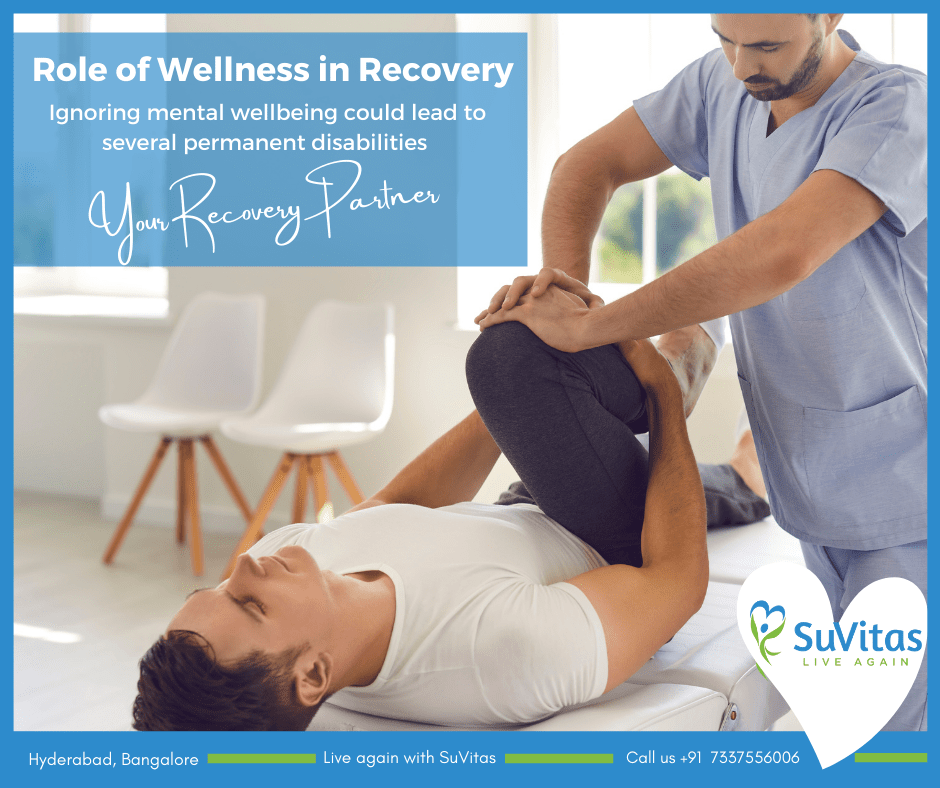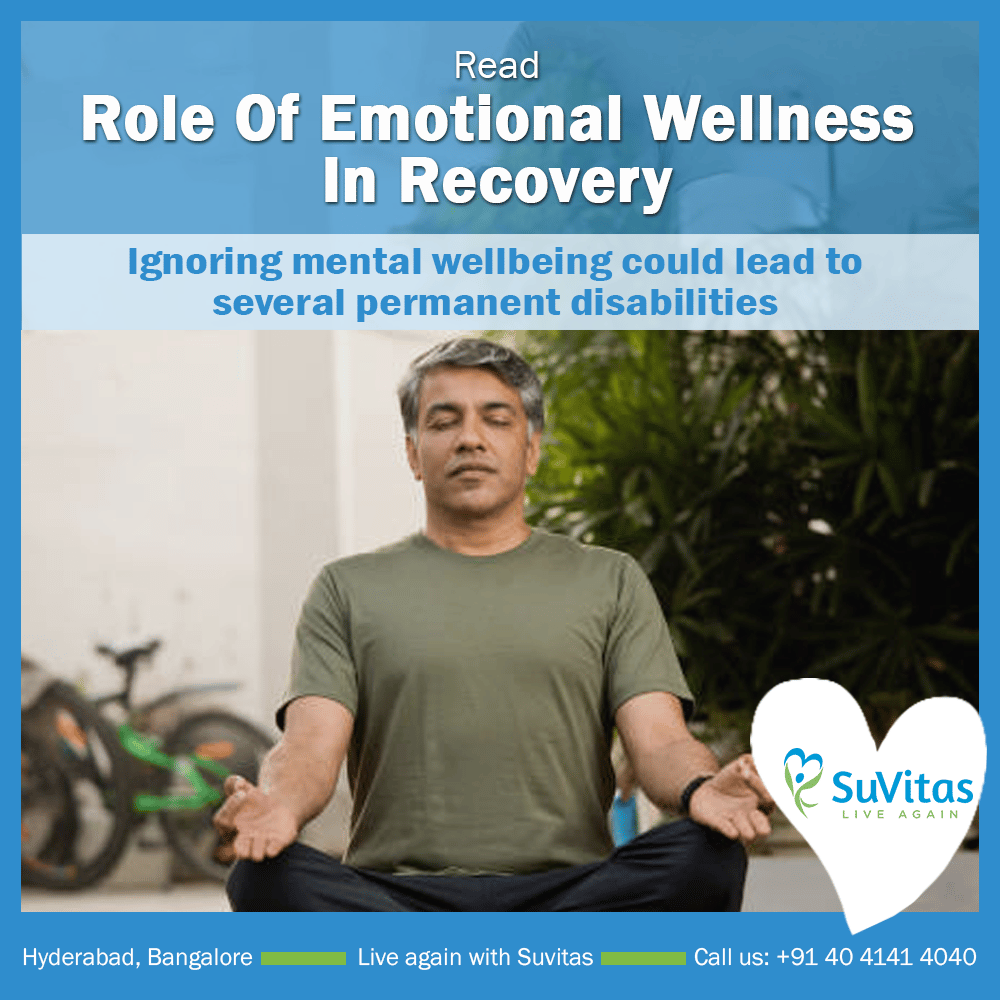
Often when we think of recovery, we may only think of treating the signs and impairments associated with an illness. Little attention is given to wellness as an integral component in rehabilitation and recovery. Haven’t we seen two people in the similar age group behaving quite differently after undergoing the same surgery? There is enough evidence to prove, the efficacy of a medical intervention is dependent on how an individual responds to it. Studies have reinforced the correlation between emotional health and functional outcomes. The link has been particularly highlighted in orthopedic incidents involving spine, trauma, hand and upper extremity surgeries and neurological disorders. If a patient’s mental wellbeing is disregarded during rehabilitation, it could result in several permanent disabilities including stiffness of the body or swellings that don’t subside.
Identifying the Risk Group
Emotional health of patients is therefore a paramount topic of concern for doctors. Despite administering state-of-the-art treatments, a surgeon will not be able to guarantee optimum results to a patient unless his/her emotional issues are identified at the pre-operative phase. Physicians will be usually in a better position to discover a patient’s anxieties, poor coping skills and signs of low-grade chronic depression during the consultation time. Accordingly such identified risk groups could be enrolled to a different post-hospitalization recovery pathway to improve their postoperative functions. This way, the additional resources needed to handle a patient’s anxieties and emotional insecurities are taken care of and he/she is supported with sufficient coping skills beyond the routine postoperative care.
Training to Overcome Instabilities
An ideal post-hospitalization recovery phase begins with the debriefing of the preliminary anxieties of the patient by his/her consulting doctor to the rehabilitation therapist. A multidisciplinary care plan is then designed in accordance with these emotional needs of the patient. For instance, a patient recovering from an amputation will need rehabilitation support to cope with the newly-formed disability at both the physical and emotional fronts. Nutrition and exercises are important components that go hand in hand with the treatment equation. Wellness interventions including yoga, meditation etc is effectively partnered with the clinical techniques to attend to the overall wellness needs of the patient.
The shift from a “disease model” to a “bio-psycho-social model” can improve a patient’s self-efficacy to handle his emotional insecurities better, thereby enhancing his overall quality of life. Wellness has been one of the most underscored aspects of the treatment cycle, but not anymore.

